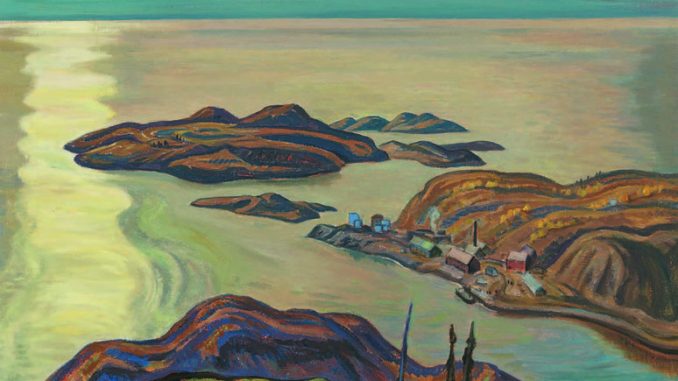
According to BWXT Nuclear Energy Canada’s ten-year license application, the company has joined the Canadian Council of Aboriginal Business to become “Progressive Aboriginal Relations (PAR) certified.”
That doesn’t sit well with the Committee for Future Generations, a group of Dene and Cree people in so-called northern Saskatchewan. The richest deposits of uranium in the world are found in the Athabasca basin which supplies 20 percent of the global market and generates up to $1 billion annually. The Committee for Future generations is devoted to “Fighting the continued destruction of lands by uranium mining and tailings as well as the under-handed tactics of the nuclear industry to sell the storage of high-level nuclear waste on First Nations territory by bribing the weak links in our governance systems.”
BWXT Peterborough currently shaves down uranium fuel pellets and inserts them in zirconium rods that become fuel for CANDU nuclear reactors. And if they get their way they will soon process 53 percent of the nuclear fuel used in Canada by baking uranium yellowcake dioxide fuel powder into pellets. The proposal would significantly increase uranium air and water pollution in Peterborough. In response local group Citizens Against Radioactive Neighourhoods (CARN), formed to oppose the move to process the uranium 30 metres away from the Prince of Wales Public School.
According to the Committee for Future Generations, “Each segment of the nuclear fuel chain is presented as a compartmentalized island which is not accountable beyond a small set of parameters.”
“We can hear the Earth crying Kuh-t’ah! A ku se!” says Susnaghe Neneh in Dene. Kuh-t’ah! A ku se! means “enough”. Neneh’s grandfather passed on the teachings from his elders that forbid touching “the black stone” and warned that disturbing it would unleash demons upon the Earth. His grandfather’s trap-line is now obliterated and in its place is the world’s largest uranium mill owned by Cameco Corporation, formerly known as El Dorado.
El Dorado began extracting uranium in the 1930’s in Sahtu Dene territory on Great Bear Lake. Bags of uranium were transported by Dene men on river boat and rail to Port Hope Ontario where it was processed for use in the Manhattan Project which culminated in the atomic bombing of Hiroshima and Nagasaki Japan in 1945.
In 1998 to mark the 53rd anniversary of the bombing, a group of ten Dene travelled to Hiroshima to apologize to the survivors and take responsibility for how the material taken from their territory was used to create such violence.
In 2013 Kirstin Scansen from the Nahithaw Woods Cree First Nation confronted BWXT (formerly GE-Hitachi) and the Canadian Nuclear Safety Commission (CNSC) at a meeting to review the operation of the Toronto uranium processing plant which holds a dual licence with the Peterborough facility. Scansen said, “The Denesuline men, who carried sacks of your beloved ‘natural uranium’… died horrible, painful deaths by cancer and bone cirrhosis, a condition where bone tissue dies and bones collapse.”
Scansen called out the “bullshit,” “lies,” and “propoganda” of BWXT and the CNSC who claim nuclear is safe. Scansen said she opposed the operation of BWXT because “it is a key cog in the machine that creates low, medium, and high level nuclear waste that humanity has absolutely no clue what to do with but is currently seeking to situate on Indigenous territories.”
It was when Scansen accused BWXT and the CNSC of hiding the connection between uranium mining, processing, and the proliferation of depleted uranium weapons and nuclear warheads – that CNSC president abruptly declared the meeting over and the commissioners walked out.
The uranium stolen from Dene and Cree territory that has coursed through downtown Peterborough for decades now sits on the shores of Lake Ontario at the Darlington and Pickering nuclear reactors. The high level spent fuel waste will be lethally radioactive for thousands of years. The Nuclear Waste Management Organization (NWMO) is now attempting to bury Canada’s supply of nuclear waste in a deep geological repository on Indigenous territory. NWMO has narrowed down its search for a “willing host community” to the Chippewas of Saugeen First Nation Territory near the Bruce Nuclear Power generating station and Migisi Sahgaigan (Eagle Lake First Nation) territory.
As the people of Peterborough-Nogojiwanong consider BWXT’s request to expand their operation and renew their operating licence for ten more years, they may want to consider not just the local impacts of uranium pollution but also the ethical implications of colonialism and radiation exposure along the nuclear fuel chain from mining to processing to power generating to weapons and waste.
